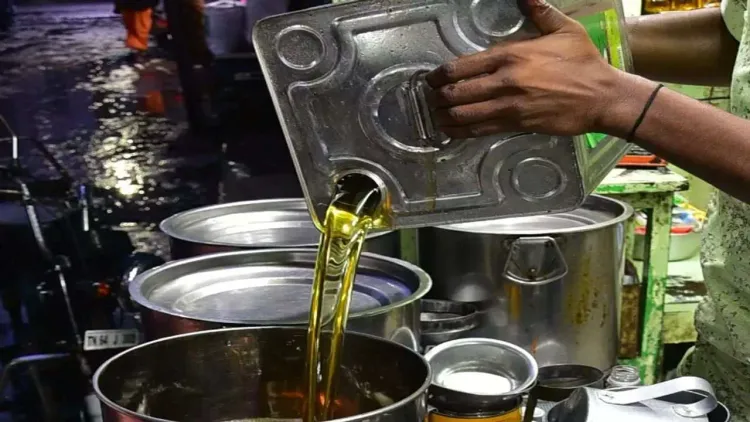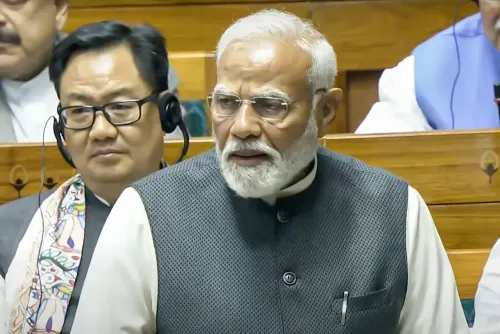Is the Government Tightening Oversight of the Edible Oil Sector with New VOPPA Order?

Synopsis
Key Takeaways
- Mandatory registration for all edible oil stakeholders under VOPPA.
- Monthly reporting via an online portal.
- Enhanced regulatory oversight and transparency in the sector.
- Penalties for non-compliance under the amended VOPPA Order.
- Critical for India's food security and supply chain integrity.
New Delhi, Oct 22 (NationPress) It is now obligatory for all edible oil producers, processors, blenders, re-packers, and other participants in the edible oil supply chain to register under the Vegetable Oil Products, Production and Availability (Regulation) Order, 2011 (VOPPA) Order and provide monthly production and stock data through the designated online platform, the Centre announced on Wednesday.
The Department of Food and Public Distribution, operating under the Ministry of Consumer Affairs, Food, and Public Distribution, has issued this significant amendment (VOPPA Order, 2025) to enhance regulatory supervision and transparency within India's edible oil sector.
This regulatory improvement is a vital measure for guaranteeing accurate data gathering, ongoing monitoring, and enhanced policy intervention in the edible oil sector—essential elements in advancing the government's initiatives toward national food security and supply chain resilience, as noted in the announcement.
A considerable number of edible oil establishments nationwide have already registered on the National Single Window System portal and are consistently submitting their monthly reports at https://www.edibleoilindia.in.
This reflects a strong commitment from industry participants towards transparency and adherence to regulations.
The government has indicated that non-compliance with the revised VOPPA Order, 2025, will be regarded as a violation, with units failing to register or submit their returns facing penalties under the provisions of the amended VOPPA Order and the Collection of Statistics Act, 2008.
To ensure effective enforcement, the Department plans to launch inspection drives and conduct field verifications of non-compliant units.
These inspections are designed to emphasize the importance of compliance and uphold the integrity of the national data ecosystem for the edible oil sector, as stated in the announcement.
Compliance with the amended order is more than just a regulatory obligation—it is a crucial element of India's food security framework.
This initiative promotes better planning, informed decision-making, and encourages a more efficient and transparent edible oil ecosystem, the statement concluded.










